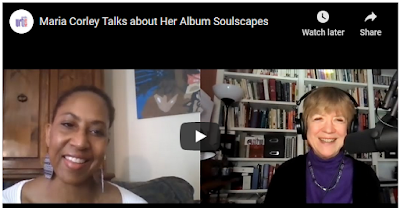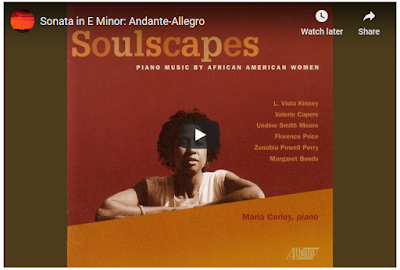While Florence Price and her student Margaret Bonds have become increasingly familiar, this album introduces others who may be less widely known. They include 20th-century composers L. Viola Kinney (whose piece, Mother's Sacrifice, is her only surviving work), Undine Smith Moore (who wrote numerous choral works, including her 1981 Pulitzer-nominated cantata, Scenes from the Life of a Martyr, based on the life of Martin Luther King) and Zenobia Powell Perry (who wrote a mass, an opera, and works for piano, band and orchestra).
Also represented are contemporary composers Valerie Capers, who writes, teaches, and performs classical music and jazz, and Dorothy Rudd Moore, whose work includes song cycles, orchestral and chamber pieces, and an opera based on the life of Frederick Douglass.
In 2006, when Juilliard graduate Maria Thompson Corley decided to put together this album highlighting Black women composers, she herself found surprises. Born in Jamaica, raised in Canada, Maria was a full time professor at Florida's A&M University before settling in Lancaster, Pennsylvania. A multifaceted artist, she is a pianist, composer, and educator who has also written poetry, short stories, and two novels.
Maria met with me on Zoom to talk about the joy and discoveries in creating this collection.
Looking for work that would contrast with the Price, Maria turned to a New York based composer she'd met named Valerie Capers, which led to her discovery of the innovative and engaging “Portraits in Jazz, for piano.”
Juillard-trained, blind since she was six years old, Capers is a classical and jazz pianist and teacher; of the 13 classical miniatures, 11 recall the styles of different jazz musicians, from Ella (Ella Scats the Little Lamb) to a mellow Billie Holiday (Billie’s Song).
Other pieces in Caper's set summon Thelonius Monk, Duke Ellington, and saxophone geniuses Charlie Parker and John Coltrane:










No comments:
Post a Comment